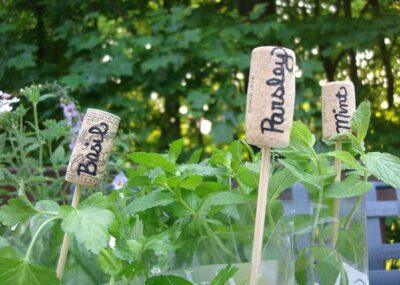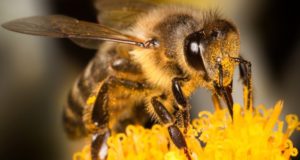|
Listen To The Article
|

Image source: DSFencing.com
I meet many people who express an interest in herb gardening, yet they have never gotten around to planting one. Often they say they do not know how to get started. What they do not realize is that medicinal herbs are among the least fussy, most adaptable plants to grow.
Planning Your Herb Garden
Anyone can grow an herb garden, and there are medicinal plants for all soils. Some prefer boggy, wooded locations; however, most herbs like soil of average fertility and moisture. A sunny location is preferred by most; but some plants thrive in the shade. Choose plants that will thrive in the conditions that you have.
You may opt to grow annual herbs or perennials. Some herbs are tiny; others are trees. Even cacti have healing properties.
Consider the appearance of your medicinal garden prior to planting. Do you want a Native American medicine wheel design or a garden designed around a focal point, such as a water feature or bee skep? Would you prefer a garden filled with medicinal plants that have showy flowers? Many herbs have wonderful flowers.
Have you considered growing a native plant garden? A garden of native medicinal plants is exceptionally valuable. Plants which grow naturally in the local environment are likely to be the most vigorous and prolific. If you use at-risk plants, planting and harvesting your own medicine heals you and the plant world.
You may choose to have a distinct garden for your herbs or grow them in a flower or vegetable garden. If you have a vegetable or flower garden, you likely have some plants in it that serve as medicinal herbs. Did you know that cayenne peppers and roses are medicinal plants?
New “Survival Herb Bank” Gives You Access to God’s Amazing Medicine Chest
Perhaps a container garden is your preference. Herbs are among the most successful container plants that you can grow. Growing in containers allows you to optimize light, water and soil requirements for your plants.
Use Local Resources when Deciding what Plants to Cultivate

Chamomile
Herbs can be grown in almost all climates. Find out what your planting zone is and choose appropriate plants. State and county agricultural departments are great resources. They may provide soil testing and even offer detailed lists, including growing instructions, of herbs that thrive in your locale.
Local nurseries sell plants which grow in local climates. If possible, support these local growers, as some plants available in big box stores may not be suited to your area. If you have an herb farm in your location, check with the proprietor for recommendations.
What Herbs Are the Best to Plant?
Anticipate the health needs of your family when choosing what to plant. The choices of what to grow are endless. You may want an herb garden for general wellness or with a specialized focus, such as women’s health.
If you have small children, dill, chamomile, catnip and fennel are great choices to include in your garden. They are used to treat common children’s afflictions and are very safe, palatable herbs.
Some of the most useful medicinal herbs are the culinary herbs. You may harvest and use them fresh or decide to preserve them for future use. Sage, oregano, thyme and rosemary contain potent antibacterial compounds. Sage is great at cooling hot flashes.
Include some calendula flowers in your garden as well. Their bright yellow and orange blossoms can be made into a soothing tea, eyewash or ointment for minor wounds.
For a general purpose herb garden, you may want to plant rosemary, thyme, garlic, peppermint, chamomile and lemon balm. Rosemary is great for the circulation. Thyme soothes sore throats and bacterial infections. Peppermint is great for comforting upset stomachs. Chamomile soothes nerves, fights viral infections and relieves stomach distress. Lemon balm is soothing and uplifting.
Most people like to include lavender in the herb garden as well for its calming, aroma therapeutic properties. Lavender and rosemary are a bit more difficult to grow than the rest of the listed herbs unless you live in an area with a Mediterranean climate.
Plants or Seeds?
You may purchase plants or start your herb garden from seeds. Seeds are less expensive and you get many plants for less cost, but starting with seedlings lets you see what the plant looks like, is simpler, and produces herbal medicine sooner. Generally speaking, a plant or two of each type is all that you will need to make enough medicine to keep a small family healthy.
Caring for Your Garden
Herbs do need some care. Contrary to popular lore, most do not thrive on neglect. I like to feed them compost and manure. Fish-based fertilizers are excellent as well. Never use chemical fertilizers on your medicinal plants. I prefer to feed them lightly, as overfed plants have less concentrated medicinal properties.
Anyone can grow a great herb garden. That includes you. Enjoy!
What are your favorite herbs to grow? Tell us in the comments section below:
Sign up for Off The Grid News’ weekly email and get $600 worth of survival blueprints … free!
 Off The Grid News Better Ideas For Off The Grid Living
Off The Grid News Better Ideas For Off The Grid Living




